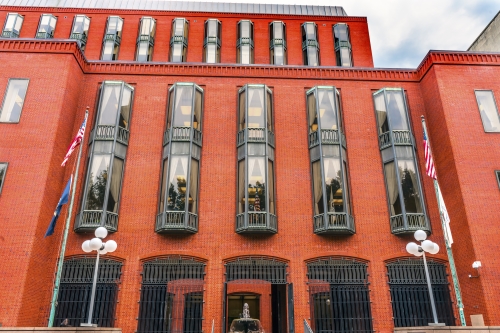Director Determines Petitioner Not Expected to Anticipate § 325(d) Argument | Jones Day
Director Vidal recently vacated a decision denying institution of an inter partes review (“IPR”) to allow Google, the Petitioner, to brief whether discretionary denial was warranted under Section 325(d) in view of a European counterpart that was of record during prosecution.
On July 5, 2022, Google filed a Petition requesting inter partes review of various claims of U.S. Patent No. 6,816,809 (“the ’809 Patent), assigned to Valtrus Innovations Ltd. Google challenged certain claims of the ’809 Patent as obvious over U.S. Patent No. 4,924,428 to Vea (“Vea”). In its Petition, Google addressed 35 U.S.C. § 325(d), which provides in pertinent part that “[i]n determining whether to institute or order a proceeding . . . the Director may take into account whether, and reject the petition or request because, the same or substantially the same prior art or arguments previously were presented to the Office.” In particular, Google noted that discretionary denial was not warranted under Section 325(d) because “[n]one of the Ground’s references were before the Office during the ’809 Patent’s prosecution.”
In its Preliminary Response, Valtrus noted that an Information Disclosure Statement (“IDS”) submitted to the Office during prosecution of the ’809 Patent included Vea’s European patent counterpart EP0320329, the disclosure of which is “substantively identical” to Vea. Valtrus argued that the inclusion of the European counterpart in the IDS implicated Section 325(d) and that “the Board should exercise its discretion under 325(d) to deny the petition.” Google thereafter requested authorization to file a reply to the Preliminary Response, in part to address whether the inclusion of Vea’s European counterpart was sufficient to invoke Section 325(d), despite not being commented on by the examiner. The PTAB denied the requested reply, determining that Google failed to demonstrate good cause.
The PTAB then determined that the challenges based on Vea indeed implicated Section 325(d). Applying the two-part Advanced Bionics framework, the PTAB concluded that substantially the same art as Vea was previously presented to the Office in the form of its European counterpart, and that Google failed to make a showing of material error by the Office in considering the European counterpart. The PTAB further determined that the remaining grounds raised in the Petition did not demonstrate a reasonable likelihood that Google would prevail in demonstrating the unpatentability of a claim, and thus denied institution of the IPR.
Director Vidal sua sponte initiated Director review to consider the propriety of the PTAB’s decision denying institution of the IPR. Director Vidal noted that the PTAB’s reasoning “implies that Petitioner reasonably should have foreseen Patent Owner’s § 325(d) argument regarding the European counterpart to Vea and that Petitioner should have preemptively presented arguments under § 325(d) in the Petition.” However, Director Vidal noted, a Petitioner “cannot be expected to anticipate every argument that may be raised by a patent owner.” Director Vidal emphasized that neither Vea nor its European counterpart referenced each other, and that Vea itself was not included in the IDS. Therefore, Director Vidal determined that Valtrus’s § 325(d) argument was not reasonably foreseeable to Google, and that good cause existed for Google to file a reply. Director Vidal thus vacated the portion of the PTAB’s decision applying § 325(d) and authorized Google to file a reply addressing Valtrus’s § 325(d) arguments. Director Vidal directed the Board to issue an institution decision considering all pre-institution papers.
Takeaway
Although Petitioners cannot anticipate every argument that may be raised by a Patent Owner, Petitioners should endeavor to include in a petition all arguments that they can reasonably foresee. Patent Owners, on the other hand, should be aware of Section 325(d) and argue for discretionary denial, if warranted.






